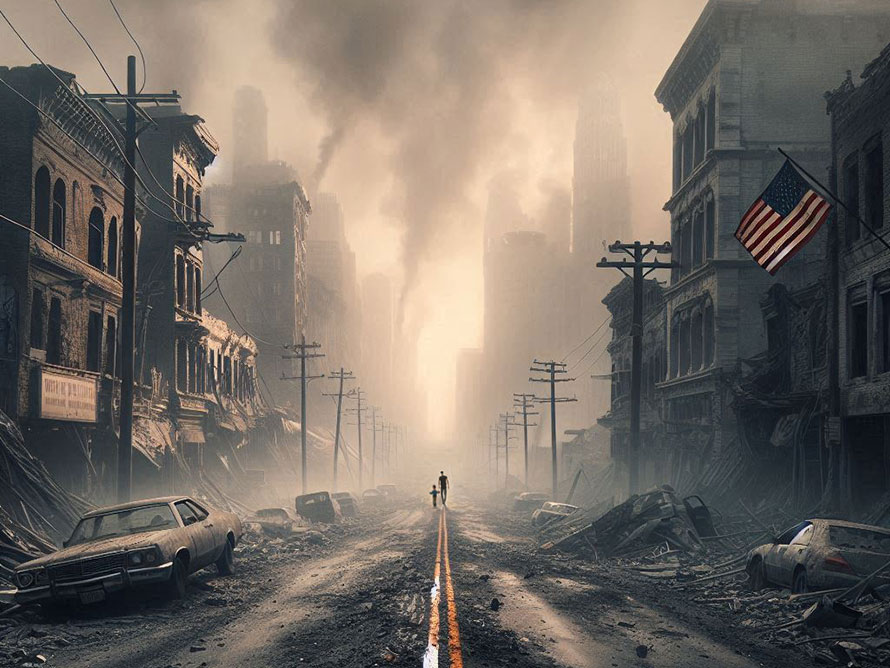The Road, dubbed by George Monbiot “the most important environmental book ever”, does not offer much to be optimistic about. With its terse, sparing prose and two unnamed protagonists, it offers a unique stylistic challenge and leaves much to inference. But it also imparts a palpableObvious or able to be felt. The word comes from a Latin verb meaning to touch gently. doom which speaks prescientlyHaving knowledge or foresight of things before they happen. to modern concerns. The two central characters, a father and his young son, undertake a journey across the post-cataclysmic wasteland that was formerly the United States of America. There is much to fear on the ash-coated interstates and treacherousDangerous. beaches that they traverse, but more frightening still is the company: fellow humans, who have turned to cannibalism and maraudingSearching for people to attack or objects to steal. to survive. The novel earned Cormac McCarthy a spot on The Guardian’s “50 people who could save the planet” list for its damning but frank representation of a post-catastrophe Earth, a prospect that we could be facing within the coming decades. But McCarthy himself emphasises that it is at its heart a tale of fatherhood, written in honour of the son he had when he was almost 70 years old, and whom he dreaded leaving behind him without a father to guide him.
The Road

Glossary
Palpable - Obvious or able to be felt. The word comes from a Latin verb meaning to touch gently.
Presciently - Having knowledge or foresight of things before they happen.
Treacherous - Dangerous.
Marauding - Searching for people to attack or objects to steal.
Dystopian - Relating to an imagined society where there is great suffering or injustice.
Allegory - A story or poem that has a hidden moral or political meaning.
